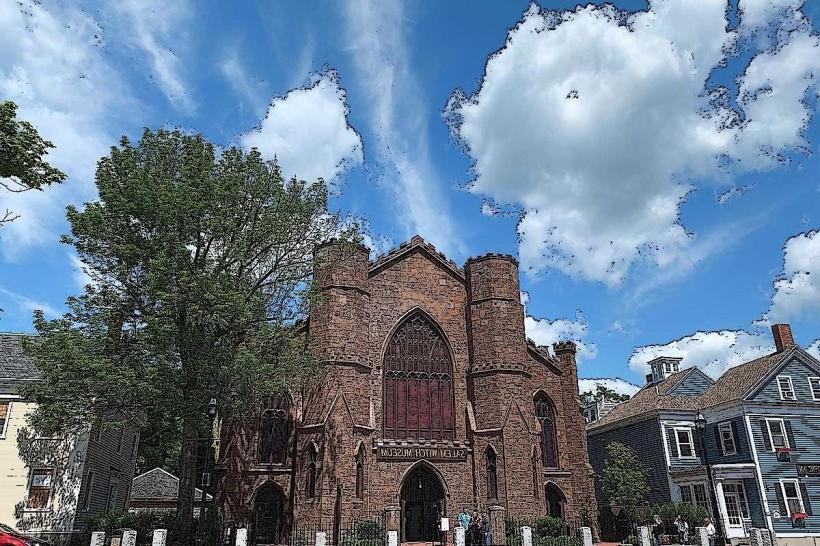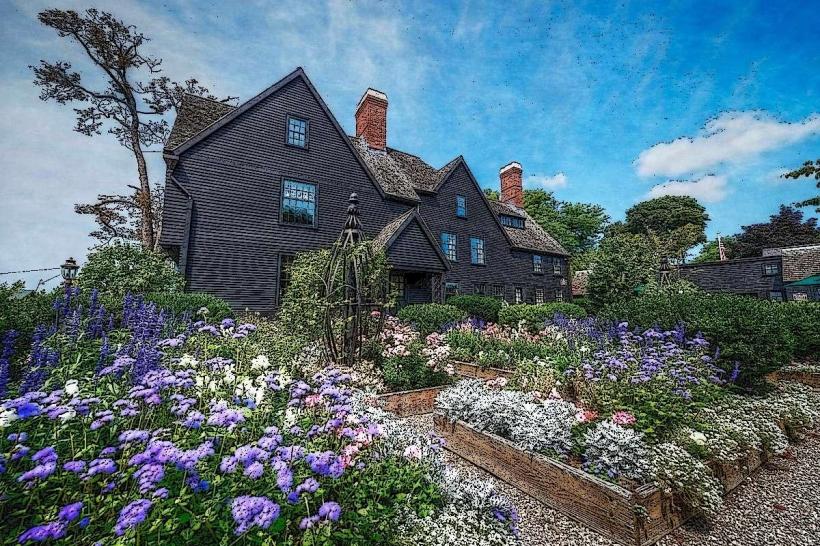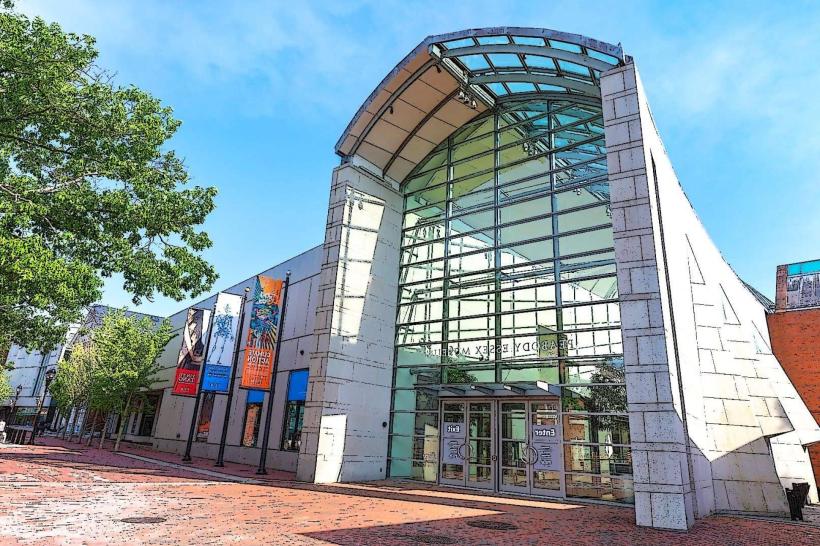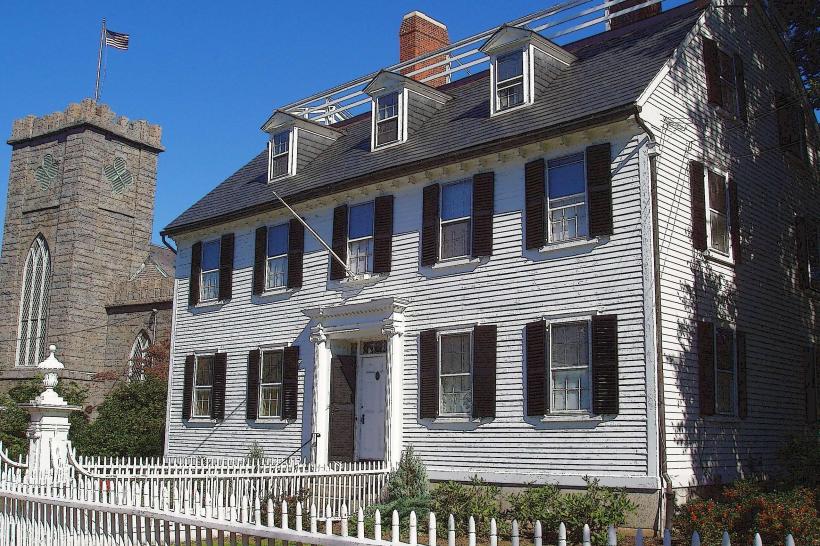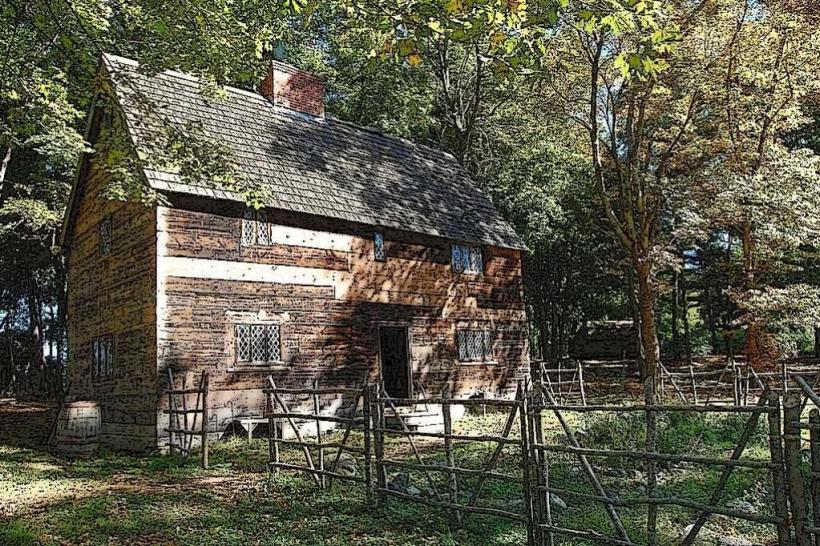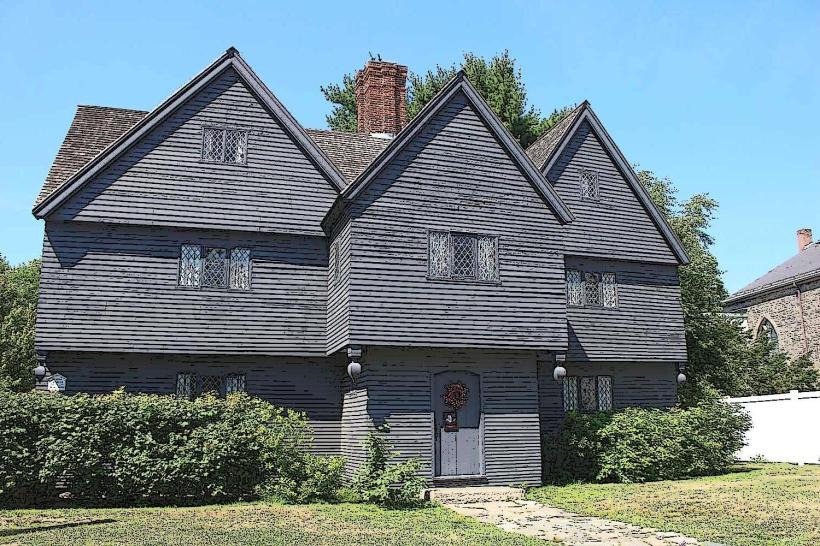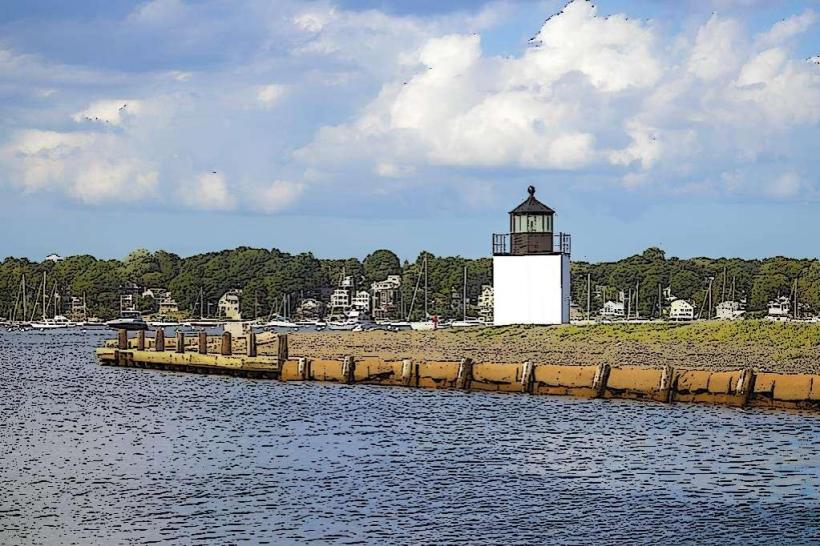Information
Landmark: Salem Maritime National Historic SiteCity: Salem MA
Country: USA Massachusetts
Continent: North America
Salem Maritime National Historic Site, Salem MA, USA Massachusetts, North America
Salem Maritime National Historic Site – In Detail
The Salem Maritime National Historic Site, established in 1938 as the first National Historic Site in the United States, is a 9-acre waterfront district in Salem, Massachusetts, dedicated to interpreting early American maritime history, global trade, and the rise of the U.S. as a commercial seafaring power after the American Revolution.
Located along Derby Street, the site includes a collection of historic buildings, wharves, a replica sailing vessel, and exhibits that together form a living museum of Salem’s pivotal role in 18th- and early 19th-century maritime commerce.
Historical Significance
Maritime Commerce Powerhouse:
During the late 1700s and early 1800s, Salem was among America’s wealthiest and most globally connected ports. Ships from Salem sailed to the West Indies, Europe, India, China, and Africa, importing spices, silks, ivory, tea, and porcelain and exporting American products like codfish, lumber, and tobacco.
Customs and Trade Regulation:
Salem’s busy port was among the first to implement the federal customs service. Revenue from duties collected in Salem funded a significant portion of the young nation’s budget in the post-Revolutionary era.
Key Features of the Historic Site
1. Derby Wharf
The longest remaining original wharf in Salem, Derby Wharf extends nearly 1,000 feet into Salem Harbor.
Built in 1762 by Elias Hasket Derby (one of America’s first millionaires), it functioned as a central hub for shipping, unloading, and loading cargo.
Today, the wharf is a peaceful, open space for walking and enjoying harbor views, with interpretive signage explaining its commercial legacy.
2. Friendship of Salem (Replica Ship)
A full-sized reproduction of the Friendship, a three-masted East Indiaman merchant ship originally built in Salem in 1797.
The original vessel completed 15 voyages to ports including Batavia, Calcutta, and Canton before being captured in the War of 1812.
The replica, constructed in the 1990s, serves as a floating museum and educational platform. When docked, it’s open for tours to showcase ship life, navigation, and early trade.
3. Custom House (1819)
The Salem Custom House is one of the most iconic buildings at the site, where goods entering the port were inspected and taxed.
Nathaniel Hawthorne worked here as a customs surveyor from 1846–1849. His experiences inspired the opening of The Scarlet Letter.
The building is preserved with many original details, including massive wooden desks, ledger books, and eagle carvings.
4. Hawkes House (1780s)
A Georgian-style mansion built for Benjamin Hawkes, a wealthy shipbuilder. It later served as the Customs District office.
It is periodically open for exhibits or tours and showcases elite merchant lifestyle and domestic design.
5. Derby House (1762)
Originally built for Elias Hasket Derby, it is the oldest brick house in Salem still standing.
The house interprets the lives of the Derby family and illustrates 18th-century merchant wealth.
6. Narbonne House (1675)
A rare surviving example of 17th-century residential architecture, showing layers of domestic life over more than 300 years.
Archaeological and architectural studies reveal how common people-not just elites-lived in colonial and post-colonial New England.
Exhibits and Interpretive Programs
Salem’s Global Trade:
Exhibits explain Salem’s international shipping routes, cargo types, and trade partnerships, offering a glimpse into the young U.S. economy's reliance on maritime commerce.
Daily Life and Maritime Culture:
Displays explore the daily lives of sailors, merchants, and customs officers, emphasizing both economic ambition and the hardships of seafaring.
Living History Events:
Reenactments, period dress programs, and shipboard demonstrations offer immersive educational experiences throughout the year.
Ranger-led Tours and Junior Ranger Programs:
The National Park Service provides historical tours and activities for children and school groups, fostering public understanding of Salem's maritime heritage.
Cultural and Educational Value
The site connects visitors not just with maritime trade, but also with themes of American independence, early federal government operations, and global economic integration.
It also reflects the evolution of Salem from a global port to a city shaped by legacy, immigration, and historic preservation.
Visitor Amenities
Orientation Center and Bookstore:
The visitor center offers maps, historical context, park films, and a gift shop with history-themed books and souvenirs.
Accessibility:
Most buildings and outdoor areas are accessible to people with disabilities. Interpretive signs are placed throughout the park, and digital resources enhance the experience.
Location and Access
Address: Spans a section of Derby Street, within walking distance of downtown Salem, Salem Common, and other major attractions like the House of the Seven Gables.
Transportation: Accessible via MBTA Commuter Rail (Salem Station) and local buses. Parking is available nearby but fills quickly in peak seasons.
Summary
The Salem Maritime National Historic Site is a richly layered destination that brings to life the story of America’s early maritime economy, global connections, and port culture. With its blend of preserved architecture, working replica ships, and immersive storytelling, it offers a vivid and authentic experience of how a small New England town helped shape the economic foundation of a young nation. Whether you're interested in seafaring history, colonial architecture, or the real world behind Hawthorne's Salem, this historic site provides a memorable and educational journey into America's nautical past.

